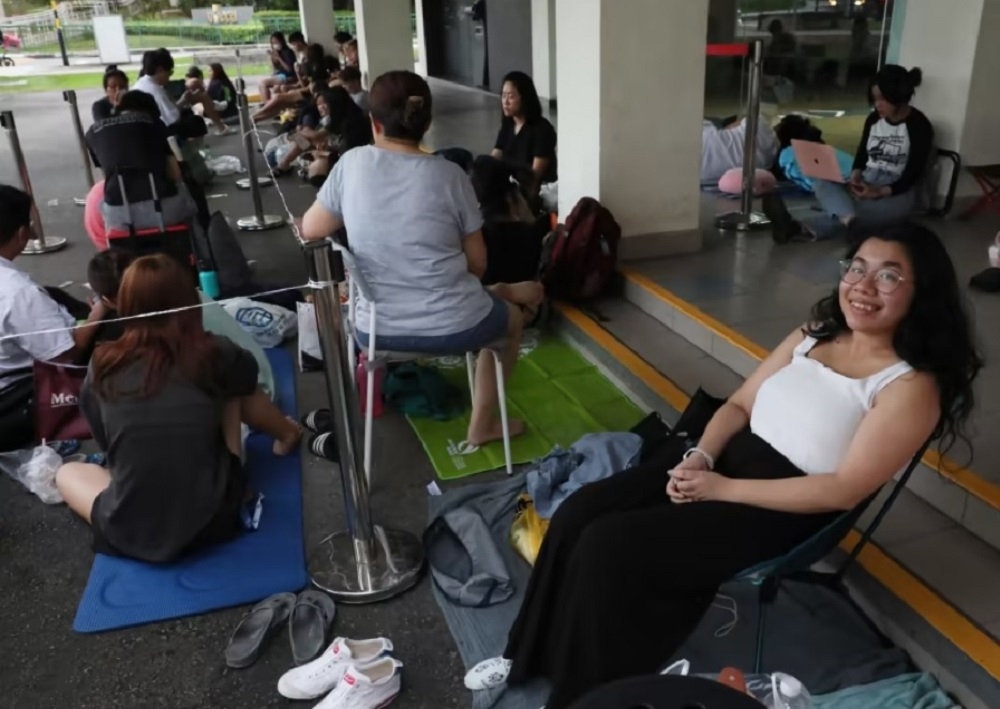JULY 9 — Over the last couple of weeks in Singapore, concerts have been the talk of the town.
First, the British rock band Coldplay, who established themselves as a global phenomenon in the early 2000s, announced they will be performing in Singapore in January next year.
Bookings for the concert saw 200,000 tickets snapped up in minutes. Responding to the massive demand, Coldplay added two more performances at the National Stadium, extending their Singapore visit from four to six nights.
Even these tickets were promptly snapped up.
Cue the inevitable jokes about the band just moving to our island and applying for permanent residency. But the demand teaches us quite a lot.
With the National Stadium holding around 50,000 people per show, six performances amount to a total of 300,000 tickets. Ticket prices ranged from S$68 (RM235) to S$268, but most of the seating appeared to be allocated to the higher cost brackets.
So, at a conservative average price of S$150 per ticket, we can estimate S$7.5 million per show. Therefore, over six concerts, Coldplay is taking in S$45 million for their six days in Singapore. In fact, the figure is almost certainly higher.
For one thing, we can see the earning power of the band and also the spending power of those buying the tickets. Now, of course, not all that money is going to the band.
Labels, organisers, and the venue will all take a share, but it’s still part of a large pie.
Perhaps we should have tried harder to become musicians as children. And on top of the band’s earnings, there’s the question of all that spending.
Who is buying? Singaporeans, of course, and generally people from a somewhat older demographic because I remember Coldplay from my youth which was quite some time ago.
I guess that’s really the demographic with money to burn and nostalgic memories to relive. But, of course, Coldplay isn’t just popular in Singapore, so we’ll see fans coming in from across the region.
Coldplay is also performing in Bangkok, Kuala Lumpur, and Jakarta but for shorter stints than in Singapore. We can expect a lot of people from the countries where Coldplay isn’t performing to head to Singapore, so plenty of relatively affluent people from Vietnam, Cambodia, and India, etc. will probably fly in for this — I wonder if foreigners will even outnumber locals.
All around, this is good for Singapore. We establish ourselves as a convenient, lucrative, and unmissable stop on international bands’ tour schedules.
Then Taylor Swift announced dates for her Singapore stop in March 2024 and the frenzy became far more intense.
Reels show entire offices taking Swift breaks to join digital queues en masse to increase the odds of getting a ticket.

These big acts bring in people from around the region — spending money, filling hotel rooms, and patronising shops and restaurants, further establishing Singapore as the premier regional centre. There’s also a cottage industry in ticket resale, with locals snapping up tickets and reselling to foreigners at fairly steep premiums.
So, it seems all good for the most part but there may be a bit of a downside to all this concert attention. As all these big names descend onto Singapore, the city-state is torn between its role as a global, regional, and local centre.
Singapore is clearly great for big names — it can deliver huge audiences for major Western, K-pop, and Mandopop stars. But with all this focus on big acts, what happens to local and even regional bands? Where do I go if I want to watch the best talent from Vietnam, Thailand, or Malaysia or catch less mainstream acts?
Singapore’s jazz scene is not exactly on fire. Afrobeats, modern classical, folk — Singapore has never really been famous for having a particularly diverse music scene, and despite all our new riches, we don’t seem to be making much progress.
Local acts, too, can sometimes be drowned out by these mega events and mega celebrities. Can any local bands sell out a 50,000-people show? Why would anyone invest in local talent when you can bring in foreign acts and reliably make a fortune?
At the very most, local bands are something of a warm-up for the main acts from overseas. And this dynamic has been much the same since I was young.
Singapore is still just a tough environment for local, regional, and less mainstream musicians. Imagine trying to make it as a young artist or band in the city?
Venues are few, costs are sky-high, and well-paying gigs are few and far between — how do you make it?
It’s a shame because I think Singapore could really be a great city for music — of all types and on any scale.
The government has done well in music education, but this hasn’t translated into venues and performances across the city. For now, things still seem focused on the mega acts.
Subcultures flourish more in KL or Ho Chi Minh City and Bangkok than in Singapore.
Someone ought to give some thought to rectifying this as we should be more than just a stage for the biggest names — we should be a springboard for local acts to go global.
*This is the personal opinion of the columnist.






















